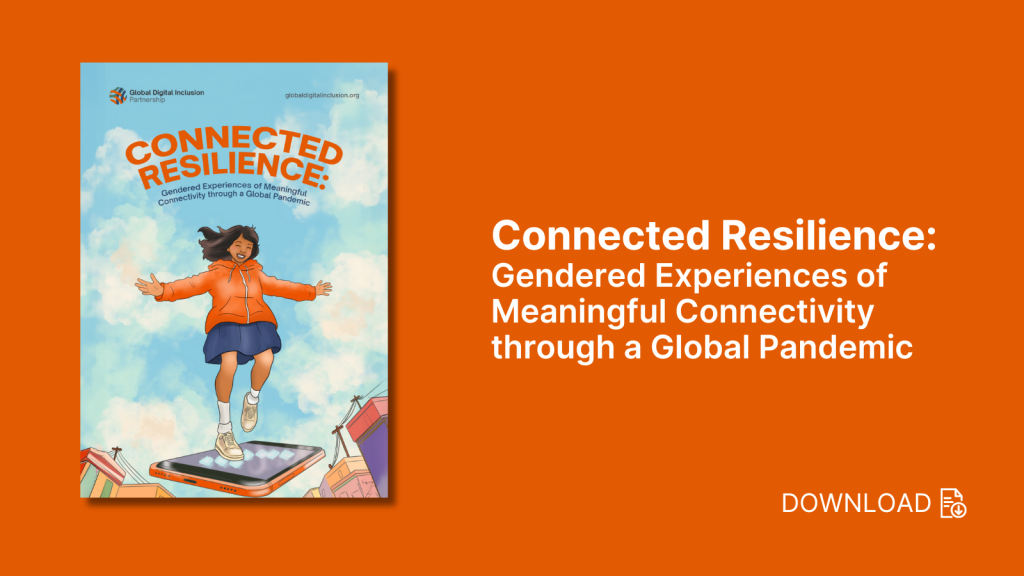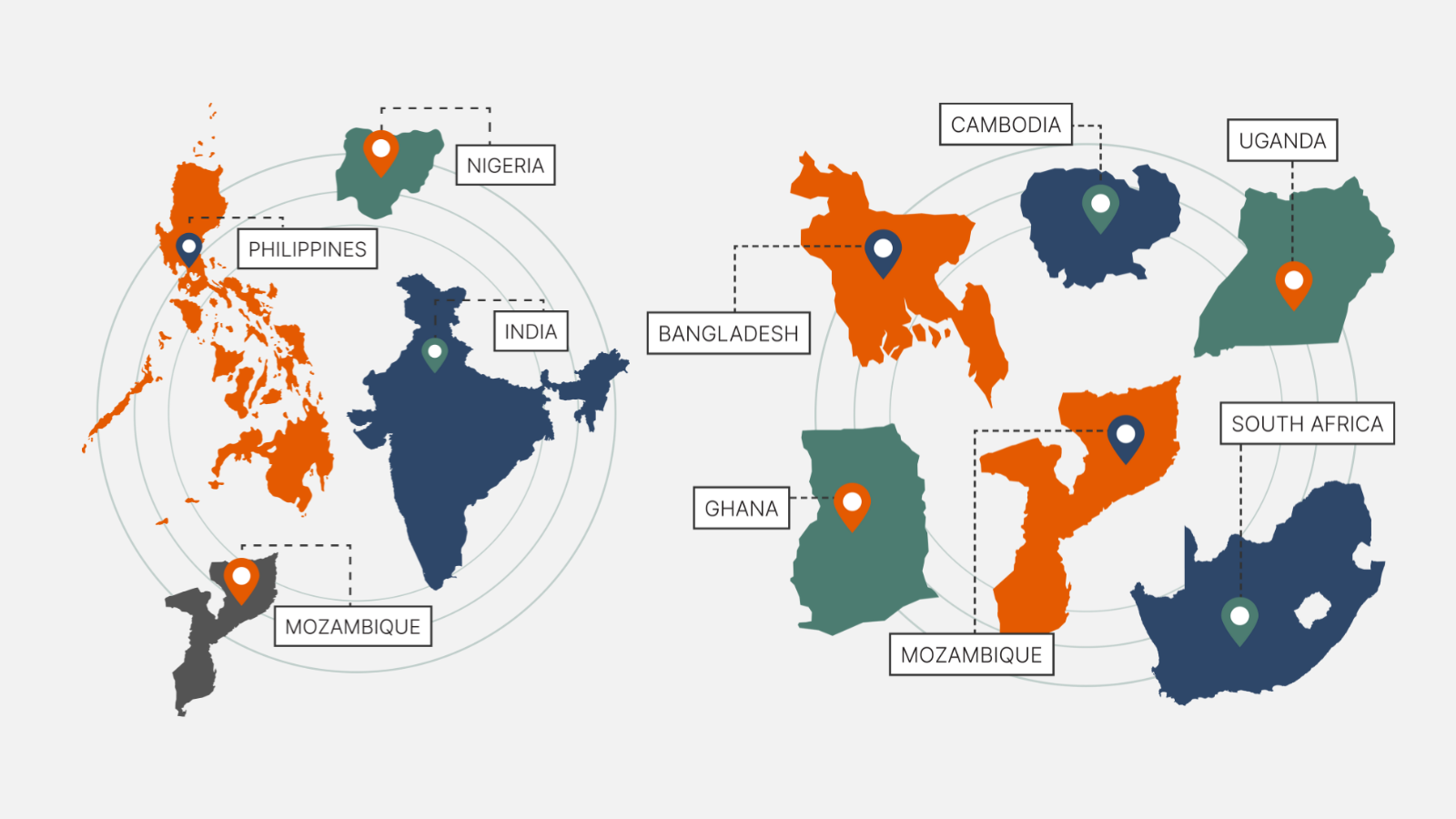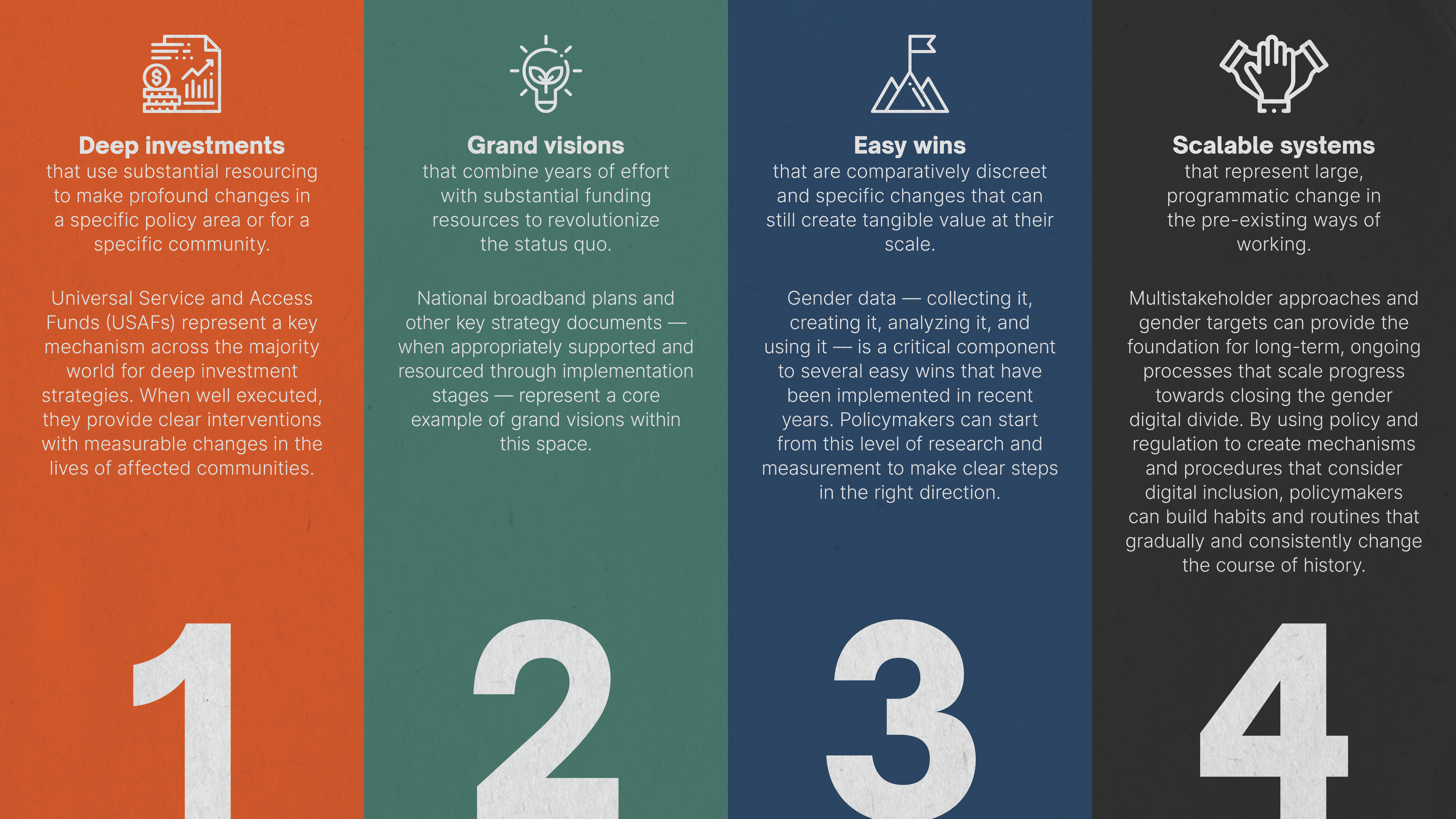Today, GDIP launches a new research report — Connected Resilience: Gendered Experiences of Meaningful Connectivity through a Global Pandemic — that provides a comprehensive overview of the challenges and opportunities in achieving gender digital inclusion, particularly in the wake of the COVID-19 pandemic.

While internet access during lockdowns became a lifeline for billions of people around the world, internet access is not universal nor evenly distributed. The COVID-19 pandemic made it clear that meaningful connectivity is now a basic requirement for all. Yet, the stubbornness of the digital divide remains a constant undercurrent. Too many women, too many of the world’s impoverished, and too many people living in rural communities remain unconnected, underconnected, or simply left behind. Just as policymakers continue to anticipate fourth industrial revolutions and digital transformations from these technologies, millions of people have yet to benefit.
From GDIP’s latest research on meaningful connectivity through the pandemic, we see hope — in the resilience of people living in marginalized communities and in the potential for policy actions that leverage opportunities to support people’s everyday lives.
The frontier of digital inclusion policy lies in people-centered solutions that can empower everyone.
This requires conscious efforts that put community consultation and community leadership front and center in the decision-making process, moving away from siloed interventions that are often top-down and driven by external motivations.
Our research set out to reflect on what we might learn from recent history to understand more about what the future of inclusive ICT policy should be. We carried out focus group discussions in India, Mozambique, Nigeria, and the Philippines and surveyed over 6,000 women from Bangladesh, Cambodia, Ghana, Mozambique, South Africa, and Uganda. We interviewed policymakers in the digital sector from across Africa and Asia regions and updated our estimates on the costs of exclusion.

Our insights highlight that — without substantial policy interventions to close the digital divide — countries are on track to lose over USD $500 billion in the next five years, essentially repeating economic losses.
Looking at patterns between those with meaningful connectivity and those with just basic or no internet access at all, we saw key distinctions between women based on geography and education in our study sample which impacted their experiences of the internet.
● Across our six survey countries, women with a tertiary education were nearly twice as likely to be meaningfully connected compared to their peers with less education.
● Women living in rural areas were three times more likely to lack internet access than their urban-dwelling peers, while women living in cities were over 50% more likely to have meaningful connectivity.
Barriers to internet access created new divides during the lockdown along the lines of gender, geography, education, and class.
Women interviewed in underserved localities — such as remote villages in India and impoverished urban settlements in Nigeria — reported restricted digital access due to:
- lack of infrastructure (such as mobile towers)
- high cost of devices and data services
- dependency on men in their family to use devices
- income-generating activities and unpaid care work leave little to no time available to access connectivity or digital skills educational initiatives.
Despite women standing up to formidable challenges to access online content for education, employment, entertainment, and family purposes, systemic barriers such as poverty, early marriage, and education level create massive obstacles to women’s digital inclusion around the world.
Policies and targeted investments in meaningful connectivity will open new trajectories and possibilities for societies and women in the digital economy.
As millions more use the internet, responding to new online harms with data protection, online safety, and consumer protection laws and standards is also an urgent concern for policymakers.
We propose four tiers of achievable solutions — and call attention to policymakers, investors, and the ICT sector at large to fast-track meaningful connectivity and inclusive digital development for all.

There are a range of strategies and policies that policymakers can adopt. As this report shows, no single combination of solutions will be universally correct: policymakers should engage with stakeholders and communities to design and implement the appropriate strategy within their context. Moving beyond mere infrastructure, the advancement of meaningful connectivity now hinges not only on technological development but also on fostering a supportive social environment for users and ensuring affordable costs for everyone.
Download the Connected Resilience full report.
Download the Executive Summary.
About GDIP
The Global Digital Inclusion Partnership is a coalition of public, private, and civil society organizations working to bring internet connectivity to the global majority and ensure everyone is meaningfully connected by 2030. Founded by a global team of experts who successfully championed affordable and meaningful connectivity around the world, GDIP advances digital opportunities to empower and support people’s lives and agency, leading to inclusive digital societies.